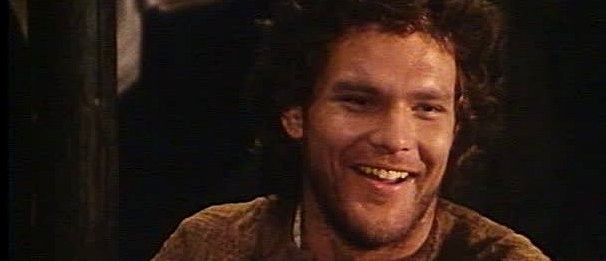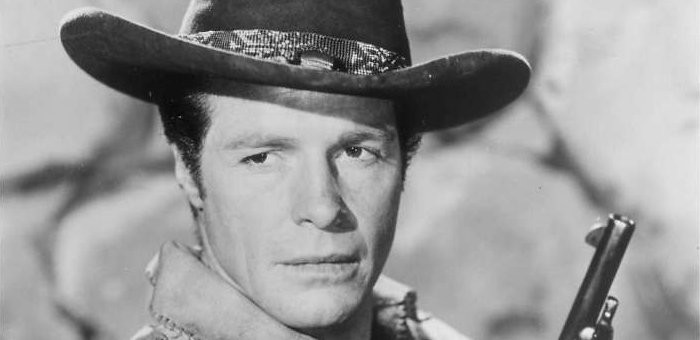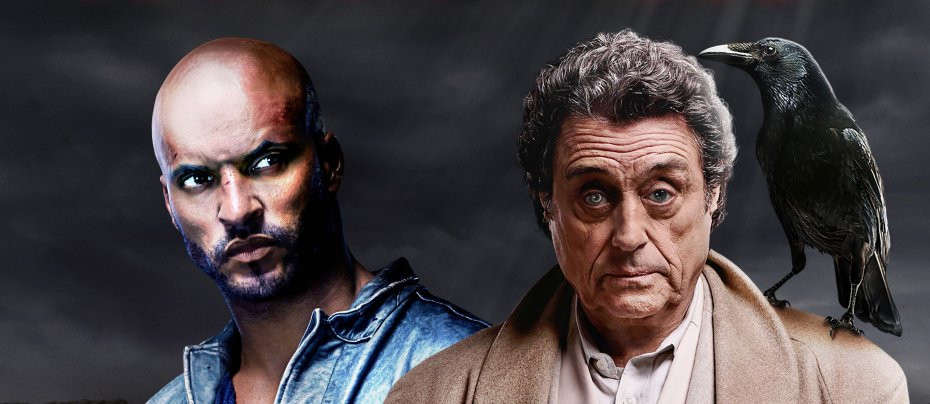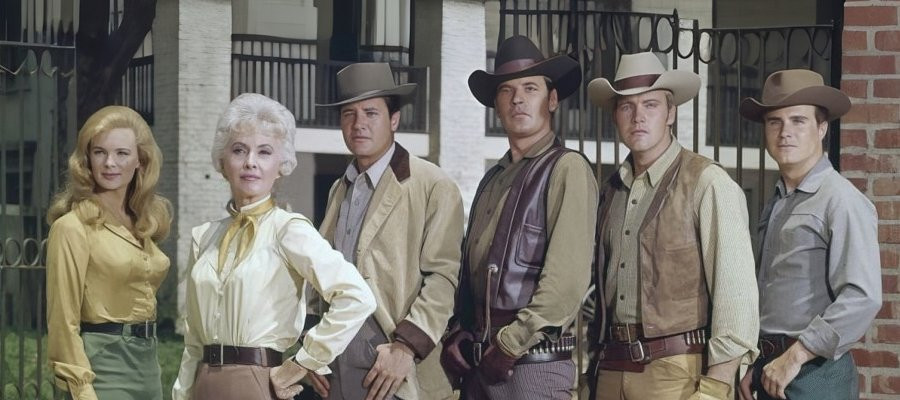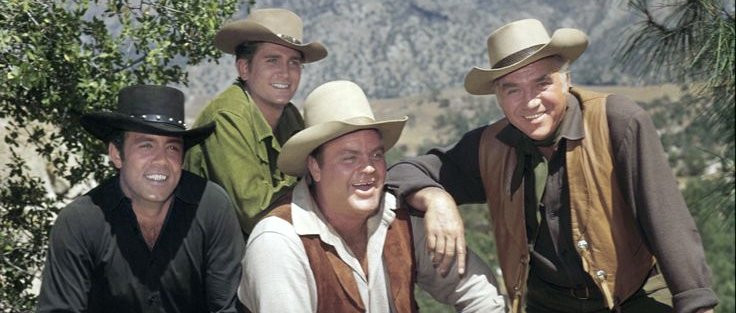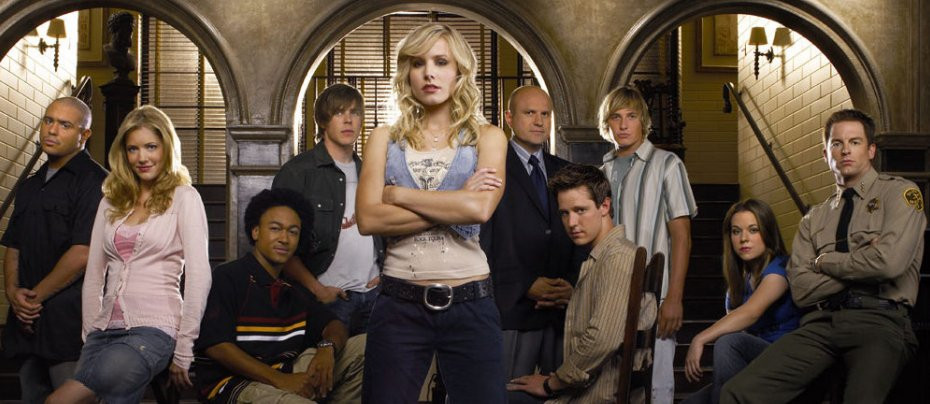
Deadwood
2004 - United StatesReview: John Winterson Richards
Social historians, spoilsports that they are, now tell us that the American West was by no means as violent as Hollywood implied. The likes of James Butler Hickok, Wyatt Earp, and Jesse James were indeed formidable gunmen, but they are remembered precisely because they were exceptional. Gunfights and massacres by Indians were rare - the Indians were statistically more likely to be the ones massacred - and there was not enough worth robbing in the early days to sustain much of an outlaw population. The works of Herbert Asbury on the gangs of New York, Chicago, and New Orleans show how the big cities of America, literally the "civilised" part, were a lot more dangerous.
Above all, the pioneers of the Old West were far too busy to waste much time on gunplay. Their lives consisted mainly of extremely hard work, building homes and farms and businesses and eventually whole communities out of nothing, with literal starvation the possible price of failure.
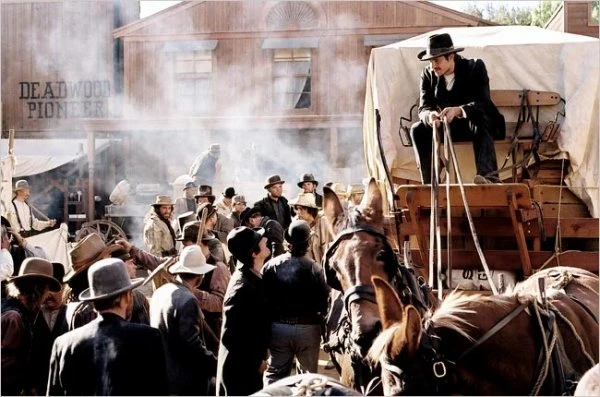
That community building is the real story of the American West. In most Westerns - those of John Ford being the most honourable of exceptions - community is just the backdrop for the entrance of the Alan Ladd or Clint Eastwood "man alone" hero. Sometimes he saves the community. Sometimes he wrecks it.
In Deadwood, the community itself takes centre stage. As it happens, potential "man alone" heroes do arrive, including probably the best gunfighter of them all, but the community either absorbs them or they do not last. That is basically the story of the Old West.
It was the brainchild of David Milch, one of the most talented American scriptwriters of his generation. Most Hollywood writers are very clever people, but not necessarily well-read or well-educated, as is all too obvious from some of their scripts. Milch, by contrast, had a serious academic career at Yale before being head-hunted and mentored by the great Steven Bochco, who transformed the whole landscape of American television drama with Hill Street Blues.
From Bochco, Milch learnt the practicalities of using large cast rather than a single protagonist, and of blending drama with comedy in a seamless, realistic whole. Together they took these skills to the next level in NYPD Blue.
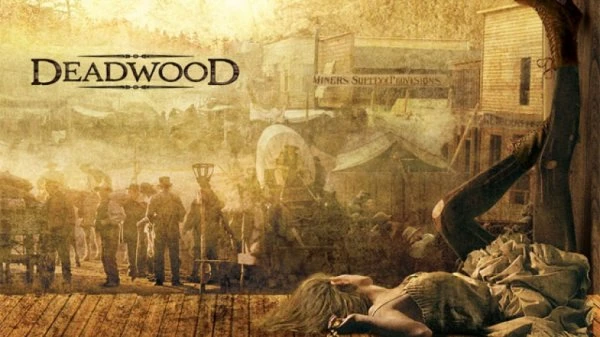
In Deadwood, Milch went well out of his comfort zone and applied the principles he had developed in police shows to the Western - and succeeded beyond all expectation in painting a credible portrait of a complete and complex community that comes across almost as organic. It is a masterpiece of sociology as well as drama.
History was on his side. By a strange coincidence, in the summer of 1876 the real-life settlement of Deadwood found itself at or near the confluence of the three defining moments in Western legend. It was a major base for the Black Hills Gold Rush, which in turn attracted probably the greatest gunfighter in history, James Butler "Wild Bill" Hickok, to seek his fortune there, resulting in the most famous poker game of all time. Meanwhile, prompted by the Gold Rush and the consequent political imperative to clear the Black Hills of their rightful owners, the Indians, George Armstrong Custer fought his last battle only a few valleys over.
Although this last is mentioned, not shown, in the first season, it might have taken place on another planet as far as most of the inhabitants of Deadwood are concerned. They are too busy working hard and trying to get rich.
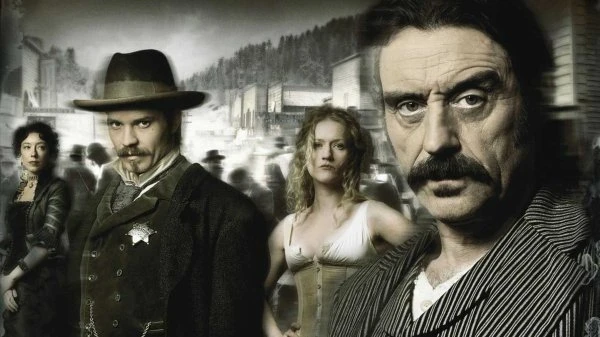
Among the most diligent in this regard is the aptly named Al Swearengen, played memorably by Ian McShane, based on a historical saloon owner and pimp. Those with fond memories of McShane as Lovejoy might consider avoiding Deadwood if they want to keep them unsullied. The foul mouthed Swearengen is a ghastly human being by any objective standard. Yet such is McShane's charm that it is hard to resist an occasional sense of sympathy, especially when his vulnerability is revealed in scenes with Trixie (Paula Malcomson), the most practical and intelligent of the prostitutes whom he exploits so ruthlessly but with whom he develops a strange bond.
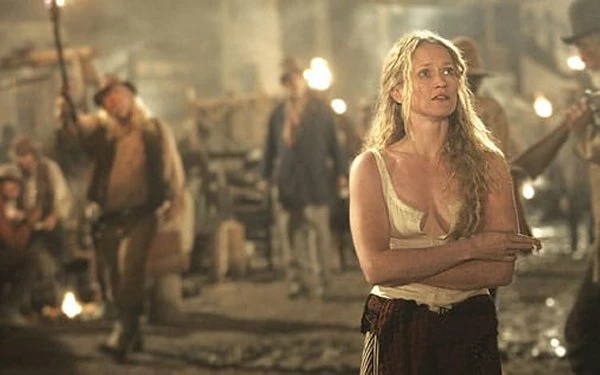
Swearengen's redeeming feature is a sincere civic pride: he cares about Deadwood, and the three seasons of Deadwood are really the tragedy of his gradual loss of control of "his" town to much bigger political and economic interests.
Again, this was the reality of the Old West. You were more likely to be robbed by lawyers than by outlaws. They simply took over the government - or set one up to ride roughshod over property rights in places like Deadwood, which was at the time technically an illegal settlement on what was still supposed to be Indian land. Saint Augustine observed that it is sometimes difficult to tell the difference between rulers and robbers, and the history of the American West - like the American East according to Asbury - provides numerous examples of the truth of this.
Indeed, it is worth noting that the most famous examples of violence in the Old West, including the Gunfight at the OK Corral, and the Lincoln and Johnson County "Wars," were just episodes of political contests fought as much at the ballot box and in the courts as with guns. Wyatt Earp had strong connections with the Republican Establishment of the time and even Jesse James can be viewed as a particularly militant Democratic activist. To call politicians on both sides thieves was by no means hyperbole.
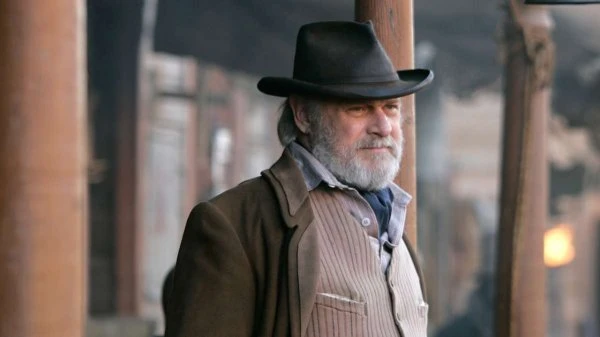
In this context, Swearengen's attempts to hold on to Deadwood are doomed to fail. He wins some initial points against the incipient political machine of the new Dakota Territory, but when mining magnate George Hearst (Gerald McRaney, a million miles from Major Dad) turns up, the power of his immense wealth is too much for any small town boss to fight.
Swearengen's occasional ally, and occasional adversary, is (fairly) honest Sheriff Seth Bullock, whose real life counterpart was later a close friend of President Theodore Roosevelt. This was the role in which Timothy Olyphant, already a well-respected actor with a strong curriculum vitae, showed he could handle himself as the leading man of a substantial television series and which therefore paved the way to Justified.
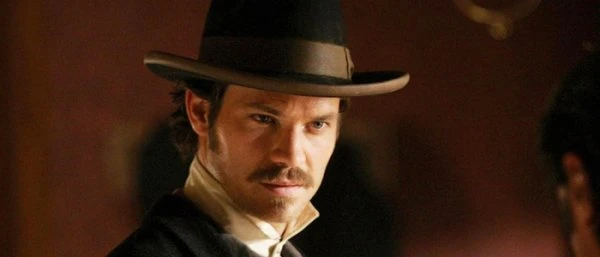
Keith Carradine plays Hickok as the gentleman he was by all accounts - there was nothing wild about him, apart from his propensity for killing people, and his name was not Bill. Other real life characters include Martha "Calamity Jane" Canary (Robin Weigert, likeable, but about as far from Doris Day as you can imagine), her friend and Hickok's Charlie Utter (Dayton Callie), Hickok "wannabe" Jack McCall (Garret Dillahunt), Mayor E B Farnum (William Sanderson), newspaperman A W Merrick (Jeffrey Jones), actor-manager Jack Langrishe (Brian Cox), the Rev Henry Weston Smith (Ray McKinnon), and gambler turned preacher Andy Cramed (Zach Grenier), whose story arc in many ways symbolises the triumph of community, but also the fact that civilisation has uncivilised roots which always remain part of it when it is full grown.
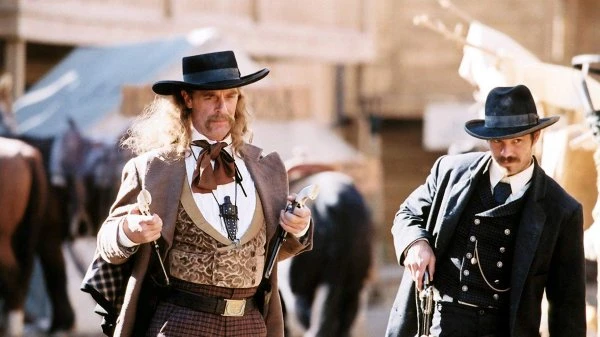
Keone Young plays Mr Wu, boss of Deadwood's "Chinatown," the leading figure of which was actually a respectable merchant named Wong Fee Lee. The lovely Kim Dickens plays a character said to be based loosely on brothel keeper Dora DuFran but the parallel is not really developed properly, which is a wasted opportunity.
It is in general one of the most outstanding casts of American television history. Those who turn up in composite and fictional roles include Brad Dourif, Ricky Jay, Alex Krige, Stephen Tobolowsky, Sarah Paulson, Jim Beaver, W Earl Brown, Garret Dillahunt (again, in a second role completely unconnected with his first as McCall), Timothy Omundson, Allan Graf, Titus Welliver, and the late, great Powers Boothe.
If the show had any weakness, it was that there were perhaps too many interesting characters and potential storylines, so that many of them were rather left hanging. Perhaps the intention was to set up some arcs for later seasons - which were, sadly, not to be.
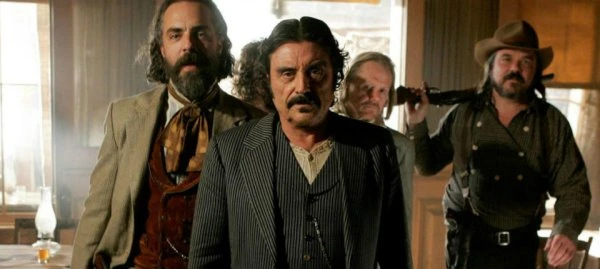
The sheer cost of all this acting talent - combined with practically perfect production values in every department that gave the whole project a wonderful sense of texture and authenticity - must always have made the production a commercial proposition about as risky as one of the businesses or mines in Gold Rush Deadwood itself. So it was a tragedy but hardly a surprise when, in spite of critical acclaim and a loyal fan base, the show was cancelled well ahead of its time.
The fans got at least some closure from a belated "television movie" twelve years after the last episode was shown. However, its real legacy is its influence on other television dramas over the intervening decade, especially on Justified and Sons of Anarchy, both of which inherited a number of its cast members and much of its style. What they also shared was a willingness to explore the dark underside of America's image of community and find there people worthy of at least some sympathy, and perhaps, sometimes, even respect.
John Winterson Richards
John Winterson Richards is the author of the 'Xenophobe's Guide to the Welsh' and the 'Bluffer's Guide to Small Business,' both of which have been reprinted more than twenty times in English and translated into several other languages. He was editor of the latest Bluffer's Guide to Management and, as a freelance writer, has had over 500 commissioned articles published.
He is also the author of How to Build Your Own Pyramid: A Practical Guide to Organisational Structures' and co-author of 'The Context of Christ: the History and Politics of Rome and Judea, 100 BC - 33 AD,' as well as the author of several novels under the name Charles Cromwell, all of which can be downloaded from Amazon.
John's Website can be found at John Winterson Richards
Seen this show? How do you rate it?
Seen this show? How do you rate it?
Published on February 27th, 2020. Written by John Winterson Richards for Television Heaven.


